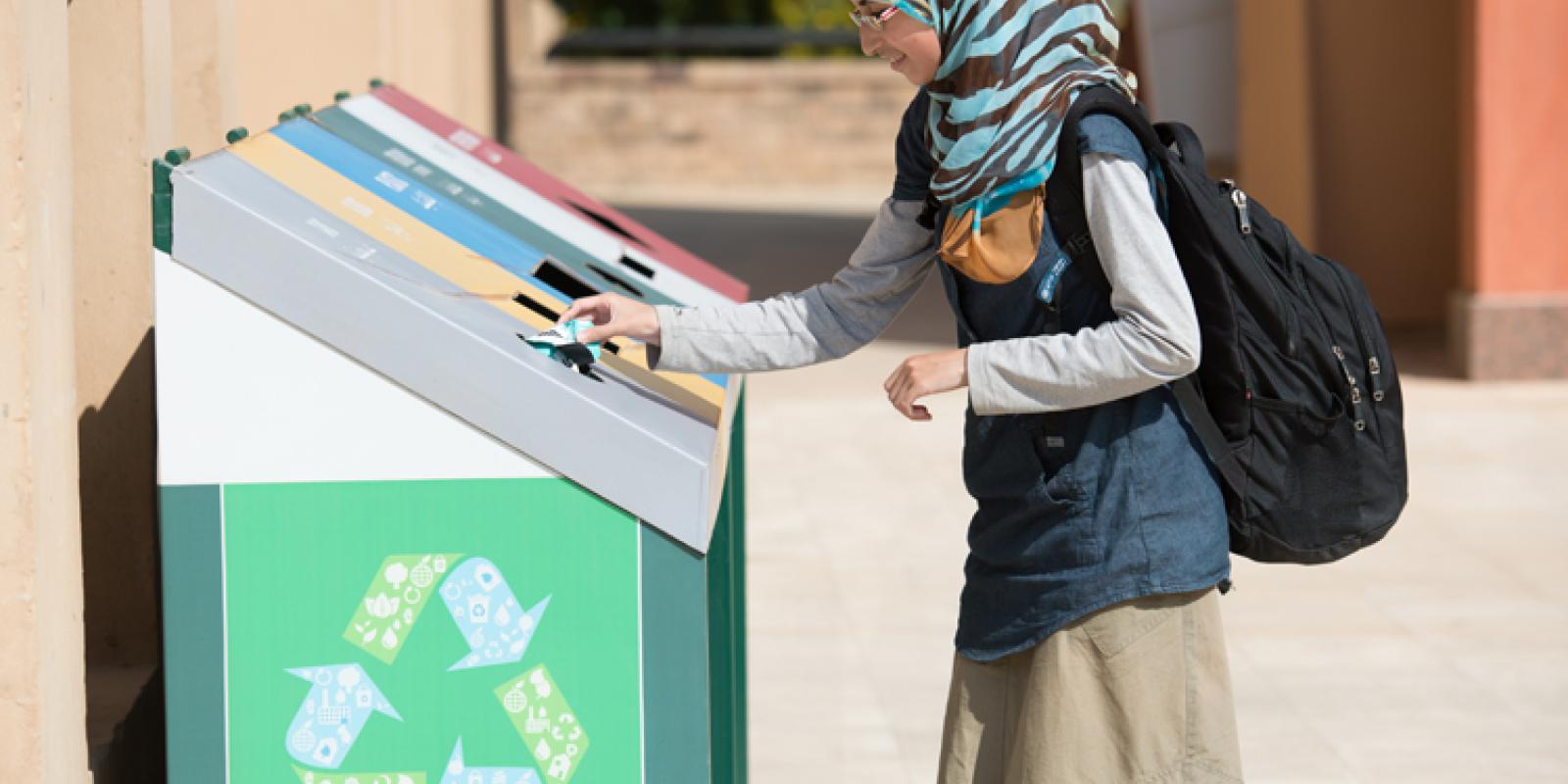
AUC Places in Top Third Worldwide of GreenMetric Ranking
In recognition of continued efforts to improve energy efficiency and implement sustainability on campus, AUC has been ranked 101 overall out of 301 universities in the University of Indonesia’s fourth annual GreenMetric World University Ranking. AUC achieved a ranking of 25 out of 301 in the energy and climate change category, the most heavily weighted metric, which considered the University’s efforts to reduce energy use and to mitigate climate change. AUC also placed 39 out of 301 in water usage and conservation.
In order to achieve the ranking, the Office of Data Research and Analytics completed a comprehensive survey, with help from several AUC offices and departments. The survey questions were broken into six categories: setting and infrastructure, energy and climate change, waste, water, transportation and education. All of these categories were considered by the University of Indonesia to arrive at the rankings.
“The fact that we scored highly validates the results of the survey, because in the last three years, AUC issued the first university carbon footprint report in the Middle East and North Africa, significantly reduced its energy and water use, created a new sustainability research center and launched a new master’s degree in sustainable development,” said Sustainability Director Marc Rauch.
Over the last few years, AUC has undertaken a number of initiatives to reduce water and electricity use, conserve energy and encourage a culture of sustainability and conservation. Under the guidance of the University’s energy conservation team, AUCreduced energy use by one-third within two years. AUC has also implemented a newwater management strategy, resulting in a projected decrease in domestic (drinking quality) water use of nearly 60 percent, along with a nearly 60 percent increase in storage capacity. Additionally, the University recently releasedCarbon Footprint 2.0 and inauguratednew faculty housing that includes green concepts in its design.
“We plan to continue reducing energy consumption, conserving water, and analyzing and reducing our carbon footprint, and we expect to maintain high rankings in the energy and climate change and water categories as the result of these efforts,” Rauch affirmed. “We also intend to improve in the other areas, such as waste, transportation, renewable energy and education through new initiatives and programs.”
The newly establishedResearch Institute for a Sustainable Environment (RISE) is launching new projects and continuing ongoing programs to integrate practical, hands-on training into AUC courses, as well as raise awareness on campus about environmental issues. “Through the Living Learning Lab, in which we use the campus landscape as a laboratory, our purpose is to get students involved in research and experiential learning,” said Richard Tutwiler, director of RISE. “Many of the activities of theDesert Development Centerwere far off campus, but with the creation of RISE and the potential of the New Cairo campus as a lab, we can integrate more AUC students from different courses to work on projects such as greenhouse design, therooftop garden, measuring water quality and bio-diversity.”
Further integrating sustainability and consciousness of environmental concerns into the AUC curriculum, the Center for Sustainable Development launched the interdisciplinarymaster’s program in sustainable development, the first-of-its-kind in the Middle East and North Africa, in 2013. The Center for Sustainable Development brings together the different academic schools at AUC –– School of Sciences and Engineering, School of Business, School of Global Affairs and Public Policy and School of Humanities and Social Sciences –– to work toward the common goal of promoting sustainability in education and positioning AUC as a platform where researchers can work on sustainable development issues and make regional and international connections.
“We are on a mission to ensure that we are on the right track with regard to sustainable development and sustainability in Egypt and the region,” said Hani Sewilam, director of the Center for Sustainable development. “An index is a good indication that we are institutionally on the right track, but we still have a lot to do to encourage sustainable development that balances the economy, the environment and society.”
The University of Indonesia launched the GreenMetric World University Ranking in 2010 with the stated aim of contributing to the discourse on sustainability education and “green” campuses and encouraging universities to lead the charge toward achieving sustainability goals. The number of schools participating in the ranking has increased every year, breaking 300 in the 2013 ranking.
